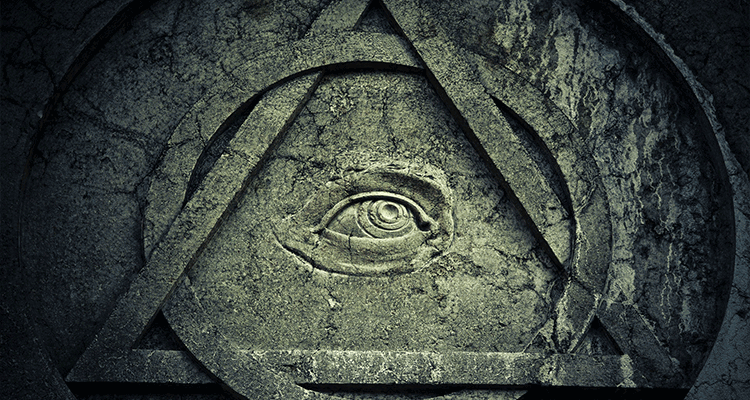A Journey into the History and Continued Existence of Secret Societies
Shrouded in mystery and intrigue, secret societies have captivated the human imagination throughout history. These enigmatic organizations have played significant roles in shaping historical events and influencing politics while operating in the shadows.
Secret societies have roots that stretch back to ancient times, often emerging as a response to political and religious oppression. One example is the Eleusinian Mysteries of ancient Greece, devoted to worshiping Demeter and Persephone and promising initiates a glimpse into the afterlife. The Pythagoreans, another ancient secret society, pursued intellectual and spiritual knowledge, advocating for mathematical and philosophical teachings.
The Illuminati, founded in 1776 by Adam Weishaupt, has become synonymous with conspiracy theories. Though their influence was relatively short-lived, the society sought to promote Enlightenment ideals, including reason, freedom, and secularism. The Bavarian Illuminati's notability grew as influential figures like Johann Wolfgang von Goethe, George Washington, and Thomas Jefferson were rumored to be members.
Freemasonry, one of the oldest and most enduring secret societies, dates back to the Middle Ages. Freemasons espouse moral and philosophical principles, emphasizing brotherhood, charity, and personal growth. Famous Freemasons include George Washington, Benjamin Franklin, and Wolfgang Amadeus Mozart, who found solace and inspiration within the fraternity. Other notable Freemasons include Sir Winston Churchill, Voltaire, and Oscar Wilde.
The Knights Templar, established during the Crusades, amassed significant wealth and influence. Accused of heresy and disbanded by Pope Clement V in the 14th century, the order left a legacy of mystery and speculation, fueling tales of hidden treasure and secret knowledge. Notable members of the Knights Templar included Hugues de Payens, Jacques de Molay, Richard the Lionheart, and Sir Isaac Newton.
Founded in 1832 at Yale University, Skull and Bones has remained an exclusive and secretive society. Its membership consists of influential individuals from political and business backgrounds. The organization has been associated with the Bush family, with notable members including George H.W. Bush, George W. Bush, John F. Kerry, and William Howard Taft.
The Ku Klux Klan (KKK) is one of America's most notorious secret societies, infamous for promoting racial hatred, violence, and terror. Founded in 1865 in Pulaski, Tennessee, by a group of Confederate veterans, the KKK was initially envisioned as a social club but quickly transformed into a secret society that sought to restore white supremacy and subjugate African Americans following the abolition of slavery.
The Klan's secrecy allowed its members to operate with anonymity, instilling fear and perpetrating acts of violence without facing immediate repercussions. The 33rd President of the United States, Harry S. Truman - who decided to detonate atomic bombs over the Japanese cities of Hiroshima and Nagasaki in 1945 - had a brief association with the KKK.
The Hermetic Order of the Golden Dawn: Emerging in the late 19th century, the Golden Dawn sought to study and practice various occult disciplines, including astrology, tarot, and ceremonial magic. It attracted notable members such as Aleister Crowley, a controversial figure known for his occult writings and rituals, and William Butler Yeats, the renowned Irish poet and playwright who drew inspiration from the society’s mystical teachings.
Originating in the early 17th century, the Rosicrucians blended mystical, alchemical, and Christian elements. Speculation about their influence on thinkers like Francis Bacon and Isaac Newton continues to pique curiosity today. Other notable members associated with the Rosicrucians include Christian Rosenkreutz, the legendary founder figure, and Robert Fludd, a prominent physician, mathematician, and philosopher.
While many secret societies have faded into obscurity, some continue to operate in contemporary times, albeit with varying degrees of secrecy and influence.
Established in 1954, the Bilderberg Group comprises global elites from politics, finance, academia, and the media. The group convenes annually in exclusive conferences to discuss global issues, fostering dialogue and potential collaborations. Attendees have included prominent figures like David Rockefeller, Henry Kissinger, Angela Merkel, and Bill Clinton.
Founded in 1928, Opus Dei is a Catholic organization emphasizing personal holiness and the sanctification of work. Opus Dei has been celebrated and criticized for its conservative values and influence within the Catholic Church. Notable members include Saint Josemaría Escrivá, the founder of Opus Dei, and Alvaro del Portillo, who succeeded Escrivá as the organization's leader.
The allure of secret societies persists today, captivating our collective imagination. From ancient cults to modern-day organizations, these secretive groups have left their mark on history and continue to shape our world. Our fascination with the unknown ensures their endurance, fueling our curiosity about the clandestine forces that may or may not shape our reality.
For more information on secret societies, including the Independent Order of Odd Fellows and the International Brotherhood of Magicians, check out The Haunted Objects Podcast!
Hey, thanks for reading Pop ‘n’ Pizza! If you found this edition interesting or useful, please share it with friends and subscribe to receive future issues!





I’m obsessed with secrect societies. Did you know that Alexander the Great was a mason? Love that one.